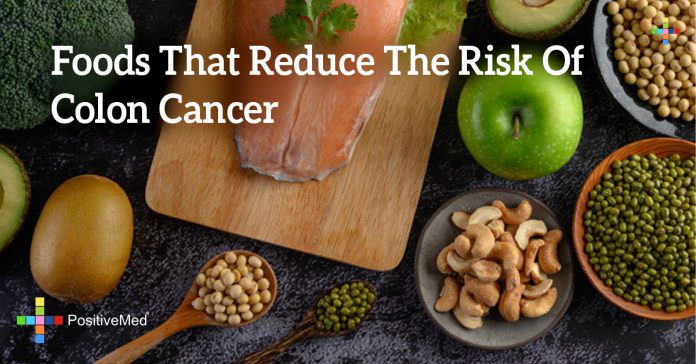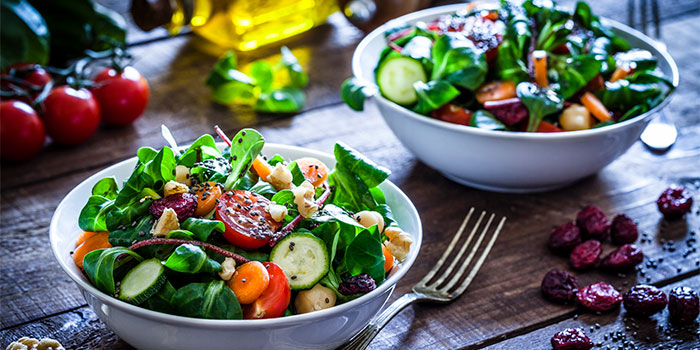diet after colon cancer treatment Colon cancer risk positivemed
Foods That Reduce The Risk Of Colon Cancer
Image
 Colon cancer is a serious disease that affects millions of people around the world. It is the second leading cause of cancer-related deaths in the United States. While there are various risk factors associated with colon cancer, including genetics and age, adopting a healthy diet can significantly reduce the risk of developing this deadly disease.
Colon cancer is a serious disease that affects millions of people around the world. It is the second leading cause of cancer-related deaths in the United States. While there are various risk factors associated with colon cancer, including genetics and age, adopting a healthy diet can significantly reduce the risk of developing this deadly disease.
There is substantial evidence that certain foods have cancer-fighting properties and can help prevent colon cancer. Let’s take a look at some of these foods:
Blueberries
 Blueberries are rich in antioxidants and have been found to have anti-cancer properties. They contain compounds called polyphenols that help reduce inflammation and inhibit the growth of cancer cells in the colon.
Blueberries are rich in antioxidants and have been found to have anti-cancer properties. They contain compounds called polyphenols that help reduce inflammation and inhibit the growth of cancer cells in the colon.
Cruciferous Vegetables
 Cruciferous vegetables like broccoli, cauliflower, cabbage, and Brussels sprouts are packed with cancer-fighting nutrients. They contain compounds called glucosinolates that help activate enzymes in the body that detoxify carcinogens and inhibit tumor growth.
Cruciferous vegetables like broccoli, cauliflower, cabbage, and Brussels sprouts are packed with cancer-fighting nutrients. They contain compounds called glucosinolates that help activate enzymes in the body that detoxify carcinogens and inhibit tumor growth.
Ginger
 Ginger has long been used for its medicinal properties and has shown promise in reducing the risk of colon cancer. It contains compounds called gingerols that have been found to inhibit the growth of cancer cells and reduce inflammation in the colon.
Ginger has long been used for its medicinal properties and has shown promise in reducing the risk of colon cancer. It contains compounds called gingerols that have been found to inhibit the growth of cancer cells and reduce inflammation in the colon.
Whole Grains
 Whole grains like brown rice, quinoa, and whole wheat bread are rich in fiber, which helps promote healthy digestion and prevent constipation. Consuming an adequate amount of fiber from whole grains has been associated with a lower risk of colon cancer.
Whole grains like brown rice, quinoa, and whole wheat bread are rich in fiber, which helps promote healthy digestion and prevent constipation. Consuming an adequate amount of fiber from whole grains has been associated with a lower risk of colon cancer.
Green Tea
 Green tea contains a high concentration of antioxidants called catechins. These compounds have been shown to inhibit the growth of cancer cells and reduce the risk of colon cancer. Drinking a few cups of green tea a day can be a healthy habit to adopt.
Green tea contains a high concentration of antioxidants called catechins. These compounds have been shown to inhibit the growth of cancer cells and reduce the risk of colon cancer. Drinking a few cups of green tea a day can be a healthy habit to adopt.
By incorporating these cancer-fighting foods into your diet, you can significantly reduce your risk of developing colon cancer. Alongside a healthy diet, regular exercise, maintaining a healthy weight, avoiding smoking, and limiting alcohol consumption are essential for overall well-being and reducing the risk of various diseases, including colon cancer.
Remember, prevention is always better than cure. Start making small changes to your diet today and take control of your health!
A Diet Plan for Before and After Colon Cancer Treatment
Image
 Being diagnosed with colon cancer is undoubtedly a life-altering experience. Alongside medical treatments and therapies, a well-balanced diet plays a crucial role in the recovery process. A proper diet plan before and after colon cancer treatment can help maintain strength, support healing, and improve overall well-being.
Being diagnosed with colon cancer is undoubtedly a life-altering experience. Alongside medical treatments and therapies, a well-balanced diet plays a crucial role in the recovery process. A proper diet plan before and after colon cancer treatment can help maintain strength, support healing, and improve overall well-being.
It is important to consult with a healthcare professional or a registered dietitian to develop an individualized diet plan that meets your specific needs. However, here are some general guidelines to consider:
Hydration
 Maintaining proper hydration is essential during and after colon cancer treatment. Chemotherapy and radiation therapy can cause dehydration, so it is important to drink plenty of fluids like water, herbal teas, and clear broths. Avoid or limit caffeinated and sugary drinks, as they may exacerbate dehydration.
Maintaining proper hydration is essential during and after colon cancer treatment. Chemotherapy and radiation therapy can cause dehydration, so it is important to drink plenty of fluids like water, herbal teas, and clear broths. Avoid or limit caffeinated and sugary drinks, as they may exacerbate dehydration.
Plenty of Fruits and Vegetables
 Fruits and vegetables are rich in essential vitamins, minerals, and fiber, which are beneficial for overall health and healing. Aim to include a variety of colorful fruits and vegetables in your diet. However, if you experience digestive issues or have specific dietary restrictions, consult with your healthcare provider about the best fruits and vegetables for you.
Fruits and vegetables are rich in essential vitamins, minerals, and fiber, which are beneficial for overall health and healing. Aim to include a variety of colorful fruits and vegetables in your diet. However, if you experience digestive issues or have specific dietary restrictions, consult with your healthcare provider about the best fruits and vegetables for you.
Lean Proteins
 Protein is crucial for cellular repair and rebuilding tissues. Include lean sources of protein in your diet, such as skinless poultry, fish, beans, lentils, and tofu. These foods are generally easier to digest and provide essential nutrients for recovery.
Protein is crucial for cellular repair and rebuilding tissues. Include lean sources of protein in your diet, such as skinless poultry, fish, beans, lentils, and tofu. These foods are generally easier to digest and provide essential nutrients for recovery.
Healthy Fats
 Incorporating healthy fats into your diet can help reduce inflammation and support healing. Include foods like avocados, olive oil, nuts, and seeds in your meals. However, it is important to consume these foods in moderation, as they are high in calories.
Incorporating healthy fats into your diet can help reduce inflammation and support healing. Include foods like avocados, olive oil, nuts, and seeds in your meals. However, it is important to consume these foods in moderation, as they are high in calories.
Fiber-rich Foods
 Fiber plays a vital role in maintaining bowel regularity and preventing constipation. Include high-fiber foods in your diet, such as whole grains, legumes, fruits, and vegetables. However, start slowly and gradually increase your fiber intake to avoid digestive discomfort.
Fiber plays a vital role in maintaining bowel regularity and preventing constipation. Include high-fiber foods in your diet, such as whole grains, legumes, fruits, and vegetables. However, start slowly and gradually increase your fiber intake to avoid digestive discomfort.
It is crucial to listen to your body and make adjustments to your diet based on your individual needs and tolerances. Remember to stay well-nourished, maintain a healthy weight, and focus on consuming nutrient-dense foods to support your body’s healing process.
Always consult with a healthcare professional or a registered dietitian for personalized guidance and support during your colon cancer treatment journey.
If you are searching about Colon cancer diet: Navigating nutritional challenges during treatment you’ve visit to the right web. We have 5 Images about Colon cancer diet: Navigating nutritional challenges during treatment like Info ! | Cancer fighting foods, Cancer fighting smoothies recipes, Foods That Reduce The Risk Of Colon Cancer and also Simple & Best Diet for Colon Cancer - YouTube. Here it is:
Colon Cancer Diet: Navigating Nutritional Challenges During Treatment
 www.cancercenter.comcolon navigating nutrients
www.cancercenter.comcolon navigating nutrients
A Diet Plan For Before And After Colon Cancer Treatment
 www.healthline.comFoods That Reduce The Risk Of Colon Cancer
www.healthline.comFoods That Reduce The Risk Of Colon Cancer
 www.positivemed.comcolon cancer risk positivemed
www.positivemed.comcolon cancer risk positivemed
Simple & Best Diet For Colon Cancer - YouTube
 www.youtube.comcancer colon diet
www.youtube.comcancer colon diet
Info ! | Cancer Fighting Foods, Cancer Fighting Smoothies Recipes
 www.pinterest.comfighting cure prevent fight naturally cures colon anti dieta diet causing liver donations anticancer preventing herbal multiply develop warzywa causes
www.pinterest.comfighting cure prevent fight naturally cures colon anti dieta diet causing liver donations anticancer preventing herbal multiply develop warzywa causes
Colon cancer diet: navigating nutritional challenges during treatment. Cancer colon diet. Foods that reduce the risk of colon cancer